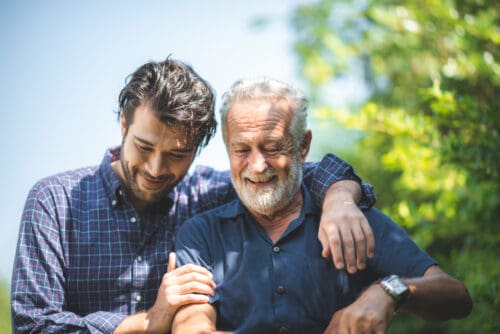The Virtues of Age: What Seniors Bring to the World
A young man was overheard asking “what are old people good for anyhow?” Bristling, this writer’s first thought was “how old is old? Surely not my age!” Alas, old has many definitions. According to an AI Overview (yup, the new source of information, AI, or Artificial Intelligence), there are three categories.
Young-Old (65-74 years): This group often resembles middle-aged adults. Many are still working, married, maintain good health, and lead active, engaged lives.
Middle-Old (75-84 years): Individuals in this stage begin to experience more significant health issues and face challenges with daily activities.
Old-Old (85+ years): This is the most advanced stage of old age, characterized by increased frailty, a higher need for long-term care, and greater physical and cognitive decline.
The Determination in Getting Old
But what virtues do older people hold? Well, they are not sissies! Every morning is a wake-up to bodies having new demands and unique adaptations. Older citizens execute complex skills to maintain balance, coordination, and prolonged strength. Most readers will agree that staying upright is a significant accomplishment, and those who do so should be bestowed a medal. William H. Thomas, author of The Hidden Powers of Age endorses other virtues of age, as follows:
- Older people are less likely to experience persistent negative emotional states. Happiness is found in little events… music, friends, a plethora of memories.
- Older people are better at regulating emotional states. Positive thoughts improve with age. After all, they have pretty much “been there, done that.”
- Age presents a greater complexity of emotional experience, and older people have developed the skills to categorize what is essential and what is not. Thinking outside the box is easily performed.
- Older people find “silver linings” much quicker than younger cohorts. Instead of “have to,” they choose “get to.” Notice the positive difference.
- Advancing age brings about a shift in values. Materialism changes with less pressure to have the latest technology or the most friends. An awareness of possessions becoming ensnaring helps free older people. What is important is important, and what is not doesn’t matter.
In addition to these emotional and psychological strengths, the virtues of age extend to how older adults shape their communities. They serve as mentors, volunteers, and keepers of tradition, passing forward values of patience, gratitude, and responsibility. These shared experiences exemplify the true virtues of age, wisdom, compassion, and purpose in action. Their influence often bridges generations, reminding society that wisdom and empathy are as vital to progress as innovation or ambition. The presence of elders in civic, family, and social life sustains continuity, giving meaning and context to change.
Aging also brings perspective. With decades of lived experience, older adults embody the virtues of age, a wealth of knowledge, resilience, and adaptability that younger generations often draw upon. They remind us that life is not just about speed or productivity, but about purpose, connection, and meaning. Their stories, humor, and wisdom enrich families and communities in ways no algorithm or quick fix ever could.
Bridge to Better Living assists families in finding what is important to them when considering a move to a Senior Community. Physical, social, medical, and financial attributes of each client are carefully considered. Consult them at No Cost to you, the client. Expert Transition Consultants are ready to help, no matter what age… they have wrinkles too.



